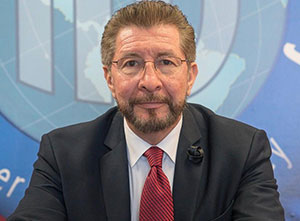Parliamentarianism and dollarization to strengthen democracy

By: Carlos Sánchez Berzaín - 10/12/2022
Share:
The recurrence of economic and political crises is a feature of almost all Latin America’s countries whose instability generates economic as well as political imbalances that negatively affect democracy. Bad governance crises are quickly turned into State crises and then into crises of the democratic system with consequent economic and institutional damages that are then used to install dictatorships. The real facts demand us to consider the strengthening of democracy by going from the presidentialism system to parliamentarianism and by formalizing the dollarization of the economy of the region.
Parliamentarianism is “a system of democratic governance of a State where the executive derives its democratic legitimacy from its ability to command the support of the legislature, typically a parliament, to which it is accountable.” In a parliamentary system, the Head of State is usually a person distinct from the Head of Government. Members of parliament are periodically elected by popular vote and the majority of these elect the Head of Government who holds office the time he/she has the backing of the parliamentary majority.
In contrast to the presidential system, parliamentarism is attributed to have the advantage of “greater representation of the social whole” by the multiple and plural participation of political factions who can achieve parliamentary representation and a “better capability to respond when faced with government’s crises” because the change of executive power occurs by the parliament’s decision. Parliamentarism allows and prompts open and public political accords with a clearer accountability of political actors to their voters.
In the presidential system the problem of reelecting heads of State with high levels of popularity has historically brought along the violation or manipulated modifications through referendums and plebiscites, of the State’s constitution for purposes of their own benefit -meaning their reelection- thus allowing, in general, the installation of authoritarian and dictatorial regimes. In the parliamentarian system this is not the problem because the Head of Government can remain in his position only if he/she has the backing of the parliamentarian majority.
The debate between the presidential system and parliamentarianism as systems of government for Latin America’s countries is longstanding with many important studies. Parliamentarianism has been put into practice in Bolivia’s municipal system through the constitutional reform of 1994. In general, the hybrid systems; semi-parliamentarian or semi-presidential, have created more complications than solutions.
There is no doubt that in the parliamentarian system is very difficult to establish and sustain a dictatorial regime that happens as a deformation of the presidential system where the President, who is Head of State and Head of Government, seeks to concentrate all power by destroying the separation and independence of all Branches of Government or ending up as a victim of them. Parliamentarianism appears to be the best system for the maintenance and defense of democracy. There is no political crisis with a good economy and economic crises in general have a political cause resulting from either having a bad government, or bad economic policies. For that reason, a discussion on the formalization of the dollarization of economies is imperative.
Dollarization is “the process through which a country adopts the United States’ dollar as their monetary official or extraofficial legal tender.” Following this concept, there are four countries in the Americas who have officially dollarized their economies, these are; the United States, Ecuador, El Salvador, and Panama. The rest of the countries are in facts extra officially dollarized.
The analysis that we propose is to adopt the Dollar as the exclusive, or predominant, legal tender, relinquishing a part of the monetary control of Central Banks that would no longer coin money. It is about the effective substitution of the country’s money by the Dollar throughout all monetary functions as the reserve’s wealth, legal tender, unit of account and means of payment.
Undoubtedly, Ecuador is the best example of Dollarization that has taken this country to a situation of greater stability and has removed the shadow of inflation due to the over-emission of money, something very typical of countries wherein the Central Bank is not independent or loses its independence and is subjected by authoritarian or dictatorial governments.
Ecuador’s former President Jamil Mahuad in his writing “This is how we Dollarized Ecuador” teaches us that the formal dollarization must be “almost impossible to revert” in order to be credible and have an effect in the markets reason why it must be based on the fact that “the country will eliminate its own monetary legal tender.” At the time of the Dollarization, 70% of Ecuador’s economy was already Dollarized. What today is a success and it can be a model for the region, twelve days after this measure went into effect, motivated the removal of Mahuad who was forced to resign and leave the country.
Parliamentarianism and Dollarization are key issues that must be considered in the process to regain democracy from the dictatorships of Cuba, Venezuela, Bolivia, and Nicaragua. In our region that is always going through recurrent and almost permanent political and economic crises, such as in Argentina, Peru, and elsewhere, these are options.
*Attorney & Political Scientist. Director of the Interamerican Institute for Democracy.
Translation from Spanish by Edgar L. Terrazas
«The opinions published herein are the sole responsibility of its author».